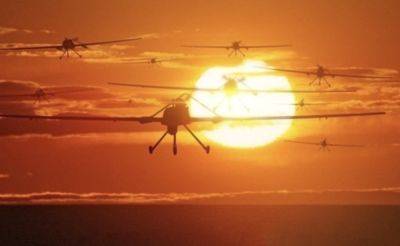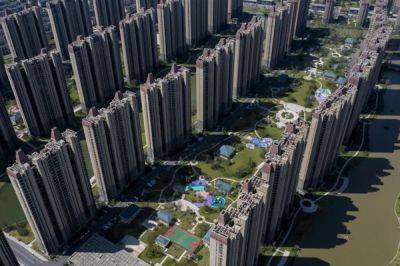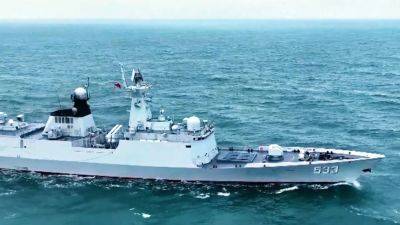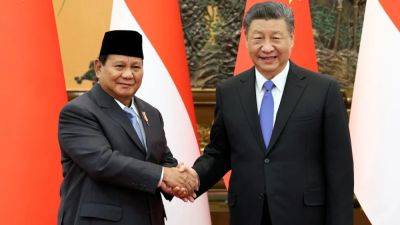China's war drills around Taiwan enter Day 2. Here's what it means for cross-strait relations
China's latest war exercises around Taiwan risk escalating cross-strait tensions — but war remains unlikely, political observers say.
Beijing warned that the two-day military drills, which continued on Friday, were aimed at punishing the island's new President Lai Ching-te for his "hostility and provocations."
The escalation comes just days after Lai was sworn in on Monday. In his inaugural speech, Lai strongly urged China to stop its political and military threats against the self-governing island.
China's state news agency Xinhua said Taiwan's new leader, in his debut speech adopted "an even riskier and more radical approach than his predecessors." The drills are "legitimate, timely and entirely necessary," as acts of "Taiwan independence" in any form "cannot be tolerated," it added.
"This feels like a prelude to more and bigger military drills to come," Wen-Ti Sung, a nonresident fellow with the Atlantic Council's Global China Hub, said in a post on X.
"This is a signal to shape international narratives. The real 'punishment' against Taiwan may be yet to come, for it takes time."
Beijing considers democratically governed Taiwan part of its territory and Chinese President Xi Jinping has has previously reunification with the mainland is "a historical inevitability."
China's Ministry of National Defense said the exercises, dubbed the Joint Sword-2024A, were a "powerful punishment" for the "separatist forces seeking 'independence.'"
The drills will focus on "joint seizure of comprehensive battlefield control, and joint precision strikes on key targets," it stated.
China's People's Liberation Army (PLA) Eastern Theater Command also said it conducted sea assaults, land strikes, air defense and antisubmarine in the airspace and







